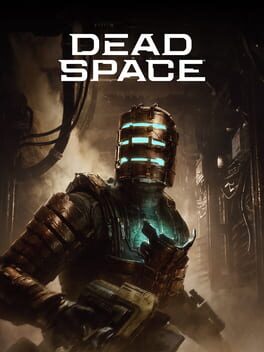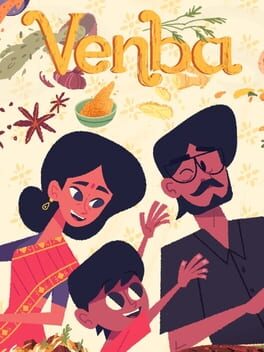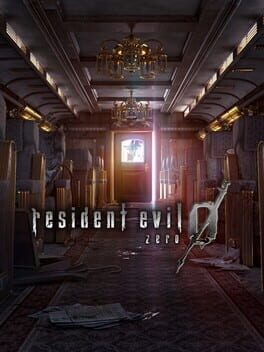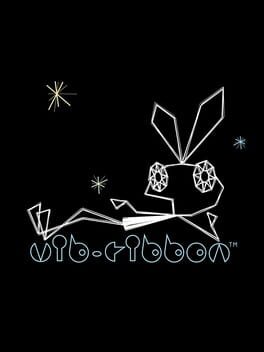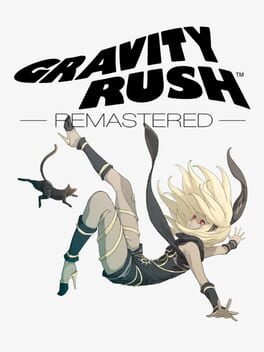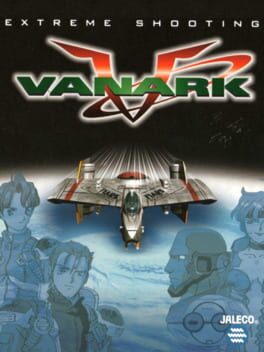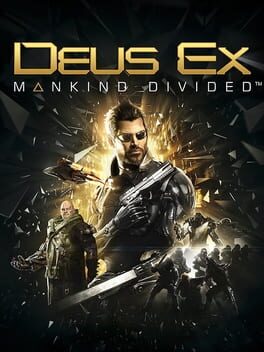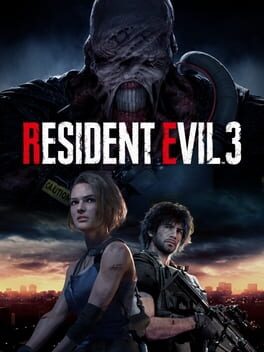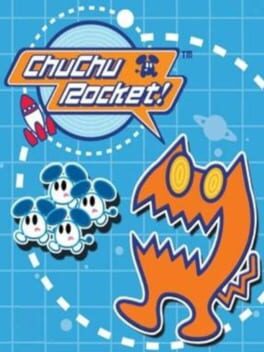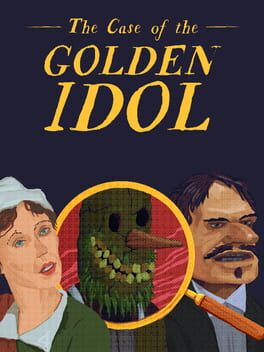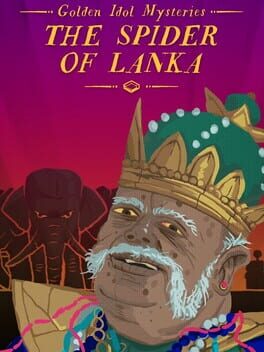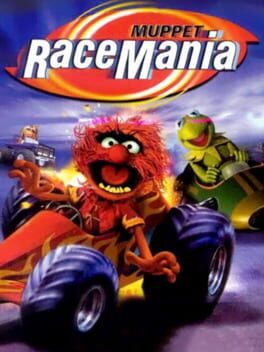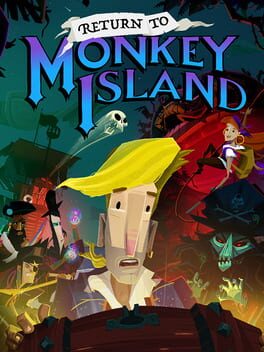Acquiescence
2023
Even the most ardent puritan would struggle to argue that the original version of Dead Space is superior to this utterly sterling remake. Dead Space (2023) improves on the 2008 original in every conceivable way. Though hardly a major overhaul, it tinkers with the original in many small, often subtle ways. Giving Isaac a (literal) voice and more agency, secondary weapon actions, a slightly reworked story that covers up a major plotline, so on and so forth; it all adds up to a notably improved experience. I honestly kinda shrugged when EA announced this was how they were bringing back the Dead Space franchise, but having played this, I'm now praying EA Motive are put to work on a Dead Space 2 remake next.
1999
Half detective sim, half slice-of-life grief simulator, half kung-fu action game. All masterpiece. Shenmue uses the everyday mundanity that we all encounter in life and uses it to enhance the more exciting moments. This isn't just heart-racing chase sequences and fist fights non stop; there's boring stuff, 'cept it isn't boring because the game does such a good job of immersing you in its world and making you care about its characters. Shenmue is virtual tourism at its finest, the soundtrack is flawless, it has an attention to detail that is rare to find in any other video games and it's ambitious in the best way possible. Sure, it almost made Sega bankrupt, but it was worth it.
2023
A very short and barely interactive slice-of-life tale revolving around the trials and tribulations of an Indian family that has immigrated to Canada, and the importance of the role that food plays when it comes to their identity and life in general.
It's reasonably engrossing stuff. It's cool to get a snapshot like this of a culture that's fairly foreign to me personally, and one that just happens to be a rarity in video games in general. The cooking minigames, which have light puzzle elements to them, didn't do much for me, but I was somewhat invested in the story and I appreciate that it didn't ever strain to hit any of its emotional story beats. Something like the Life is Strange series continually beats the player over the head in the most ham-fisted way with its drama, which is often what I fear will happen when playing an indie game which has emphasis on narrative, but Venba takes a subtle and natural approach and it works.
Will I ever play it again? No. Will it linger on in my mind long after the end credits have finished scrolling? Probably not. It's a nice enough way to while away an evening though.
It's reasonably engrossing stuff. It's cool to get a snapshot like this of a culture that's fairly foreign to me personally, and one that just happens to be a rarity in video games in general. The cooking minigames, which have light puzzle elements to them, didn't do much for me, but I was somewhat invested in the story and I appreciate that it didn't ever strain to hit any of its emotional story beats. Something like the Life is Strange series continually beats the player over the head in the most ham-fisted way with its drama, which is often what I fear will happen when playing an indie game which has emphasis on narrative, but Venba takes a subtle and natural approach and it works.
Will I ever play it again? No. Will it linger on in my mind long after the end credits have finished scrolling? Probably not. It's a nice enough way to while away an evening though.
2016
It's called Resident Evil 0, because it's zero fun to play! Ba dum tsh.
This is my first rodeo through Resident Evil 0. Its reputation precedes it, so I knew going in that I was in for a lesser experience, but even with expectations set accordingly, it still managed to disappoint. What can one say about this game's fundamental flaws that haven't been said a million times already. I've nothing new to contribute. The inventory management is as clumsy, time-consuming and burdensome as everyone says. It's a pain in the fucking arse is what it is! Classic Resi had a good thing going with the item box system, but some bright spark at Capcom thought it would be a good idea to force the player to constantly run back and forth picking up items that they had to leave in some room thirty loading screens away, because of annoyingly restrictive inventory space. And because the player is forced to constantly abandon weapons/ammo/items, the backtracking as a result renders this game insufferable at times. Exchanging items between Billy and Rebecca just further exacerbates all this finicky nonsense. So much time is spent arranging items to be where you want them to be that it obliterates any sense of tight pacing in the overall campaign. The game feels way longer to get through than it should.
It's a shame, because at the core there's a good Resi experience in the classic vein to be found here. The graphics actually hold up beautifully. This game is a case in point of why pre-rendered environments are a truly lost art. There's atmosphere in spades, particularly in the early train section (easily the highlight of the entire campaign). But some baffling design choices, not to mention an incoherent and just plain risible story, mean that 0 is destined to find itself near the bottom of every Resident Evil TierMaker list.
If you've not played Resident Evil 0 yet, be kind to yourself and continue ignoring it.
This is my first rodeo through Resident Evil 0. Its reputation precedes it, so I knew going in that I was in for a lesser experience, but even with expectations set accordingly, it still managed to disappoint. What can one say about this game's fundamental flaws that haven't been said a million times already. I've nothing new to contribute. The inventory management is as clumsy, time-consuming and burdensome as everyone says. It's a pain in the fucking arse is what it is! Classic Resi had a good thing going with the item box system, but some bright spark at Capcom thought it would be a good idea to force the player to constantly run back and forth picking up items that they had to leave in some room thirty loading screens away, because of annoyingly restrictive inventory space. And because the player is forced to constantly abandon weapons/ammo/items, the backtracking as a result renders this game insufferable at times. Exchanging items between Billy and Rebecca just further exacerbates all this finicky nonsense. So much time is spent arranging items to be where you want them to be that it obliterates any sense of tight pacing in the overall campaign. The game feels way longer to get through than it should.
It's a shame, because at the core there's a good Resi experience in the classic vein to be found here. The graphics actually hold up beautifully. This game is a case in point of why pre-rendered environments are a truly lost art. There's atmosphere in spades, particularly in the early train section (easily the highlight of the entire campaign). But some baffling design choices, not to mention an incoherent and just plain risible story, mean that 0 is destined to find itself near the bottom of every Resident Evil TierMaker list.
If you've not played Resident Evil 0 yet, be kind to yourself and continue ignoring it.
1999
The game was already brilliant on Vita. Bluepoint came along and polished it up to a tee. Maybe their finest remaster work. Even the Gravity Slide maneuver that was a pain in the arse to pull off in the original feels beautiful to control in this. How was there never a racing game side-quest in either of the GR games? Kat and her Gravity Slide pitched against a bunch of motorheads and their automobiles. Seemed like the perfect mini-game to me. Oh well, maybe in Gravity Rush 3.
1999
Boy did this game give me some trouble on emulators. First I tried it via Autobleem. I had problems, but managed to make it to the second boss okay... before it crapped out every time by hard crashing. Then I tried Retroarch and it was even worse. I had considered giving up and moving on, but decided on downloading Duckstation and giving that a try.
Holy shit, Duckstation is a revelation!
It's so much better than Autobleem and Retroarch. Not only did Vanark run flawlessly on it, but it practically looked like a freakin' PS2 game with the 1080p resolution bump and whatever else was going on under the hood. Hell, I'm even tempted to go revisit all my PS1 favourites on that thing to see how improved they look. Needless to say, all future PS1 games will be played on Duckstation from now on.
Oh yeah, Vanark. Interesting game. The term 'hidden gem' gets thrown about with wild abandon these days, but in the case of Vanark, it certainly is... well... it's hidden alright! This game is obscure as hell considering it got a Western release and everything. No one talks about it, which is a shame as it's a pretty damn good 3D rail shooter in the vein of Panzer Dragoon or Starfox. And there's a nice bit of variety in these missions too, where sometimes you'll be granted totally free movement in an arena, or you'll be required to avoid hazards in the environment more than shooting down enemy ships. What separates Vanark from those games though are some brief (and very underdeveloped) adventure segments slotted in between the shooty shooty bang bang stuff. As the protagonist Shun, you can walk around the pre-rendered environment that is your mothership, complete with tank controls and fixed-camera angles, and... talk to people. And that's about it. Like I said - underdeveloped. It's a shame because the hub has a strong ambiance. There's a lounge room in particular, adorned with an aquarium and some atmospheric lighting, that looks absolutely gorgeous by PS1 standards. And this specific room is complimented by some of the finest smooth jazz I've heard in a video game. It's a true vibe.
https://i.imgur.com/RgpOS5R.png
But there's simply no good reason to visit this place other than to have it on in the background. It serves no role, and like most of the other locations in this hub area, is little more than an afterthought. The game is very short and can be completed in a single session if you're skilled enough (or abuse save states like I did), so maybe the adventure sections are a desperate bid to stretch out the campaign length a bit. But they're ultimately just a half measure. For a rail shooter that puts a fair bit of emphasis on story, Vanark still manages to be undercooked and underwritten, and really could've used a stronger emphasis on developing its lore and cast of characters. As it stands though, it's a perfectly competent Panzer Dragoon imitator with the best goddamn lounge room of its console era.
Holy shit, Duckstation is a revelation!
It's so much better than Autobleem and Retroarch. Not only did Vanark run flawlessly on it, but it practically looked like a freakin' PS2 game with the 1080p resolution bump and whatever else was going on under the hood. Hell, I'm even tempted to go revisit all my PS1 favourites on that thing to see how improved they look. Needless to say, all future PS1 games will be played on Duckstation from now on.
Oh yeah, Vanark. Interesting game. The term 'hidden gem' gets thrown about with wild abandon these days, but in the case of Vanark, it certainly is... well... it's hidden alright! This game is obscure as hell considering it got a Western release and everything. No one talks about it, which is a shame as it's a pretty damn good 3D rail shooter in the vein of Panzer Dragoon or Starfox. And there's a nice bit of variety in these missions too, where sometimes you'll be granted totally free movement in an arena, or you'll be required to avoid hazards in the environment more than shooting down enemy ships. What separates Vanark from those games though are some brief (and very underdeveloped) adventure segments slotted in between the shooty shooty bang bang stuff. As the protagonist Shun, you can walk around the pre-rendered environment that is your mothership, complete with tank controls and fixed-camera angles, and... talk to people. And that's about it. Like I said - underdeveloped. It's a shame because the hub has a strong ambiance. There's a lounge room in particular, adorned with an aquarium and some atmospheric lighting, that looks absolutely gorgeous by PS1 standards. And this specific room is complimented by some of the finest smooth jazz I've heard in a video game. It's a true vibe.
https://i.imgur.com/RgpOS5R.png
But there's simply no good reason to visit this place other than to have it on in the background. It serves no role, and like most of the other locations in this hub area, is little more than an afterthought. The game is very short and can be completed in a single session if you're skilled enough (or abuse save states like I did), so maybe the adventure sections are a desperate bid to stretch out the campaign length a bit. But they're ultimately just a half measure. For a rail shooter that puts a fair bit of emphasis on story, Vanark still manages to be undercooked and underwritten, and really could've used a stronger emphasis on developing its lore and cast of characters. As it stands though, it's a perfectly competent Panzer Dragoon imitator with the best goddamn lounge room of its console era.
Purely from a gameplay standpoint, Mankind Divided makes the necessary strides from Human Revolution in terms of building upon its established stealth mechanics and presenting more options to the player in how to tackle objectives. I like that, and this is a great game to play. It terms of its story however, it's disarmingly small in scale. I miss the grandeur of Human Revolution's narrative. That game felt like it took you on an odyssey through a dark, dystopian world. Mankind Divided by comparison feels like an ambitious DLC expansion.
2020
Inferior to the original? Yes. Inferior to REmake 2? Oh yes! The remake of 3 is a bit of a rush job and everyone knows it by now. A short running time and cut content makes this game feel incomplete, and what saves it is that it plays similarly to the previous remake. Good, but could've been so much better.
1999
This is one of those games that looks ugly to the point of being downright off-putting, but if you give it just ten minutes of your time, you'll be hooked before you know it. I've loved games with detective elements ever since I was a kid, and Golden Idol does a superlative job of making you feel like a super sleuth. You're presented with a scene, usually moments after a murder has been committed, and it's the player's task to figure out what happened by gathering all the evidence, pouring over it and then filling in the blanks. It quickly becomes an addiction as you go from one case to the next; finding out who the culprit was using your own deductive reasoning. And all these different vignettes are tied together by a surprisingly intriguing narrative that, while hardly shoved in your face, provides enough solid story beats that you have a firm grip on everything that has ensued by the end credits.
I hope this game goes on to be the sleeper hit of 2022. It deserves it. I think it's (purposefully) grotesque art direction could work against it, but don't let it! There is an incredibly compelling detective romp hidden behind those garish colours and bulbous features.
I hope this game goes on to be the sleeper hit of 2022. It deserves it. I think it's (purposefully) grotesque art direction could work against it, but don't let it! There is an incredibly compelling detective romp hidden behind those garish colours and bulbous features.
So without giving away too much, there's a visual clue in the second section of the game that is vital to knowing the name of the location you're looking at and the names of three of the characters. You're supposed to compare the direction the moon is facing with any monuments in the environment and then use the map to figure out what kingdom you're in. The problem is, the visuals are in 2D and the environment is deliberately framed. It's hard to get a sense of perspective and it's not like I can move a camera around. So how the fuck am I supposed to get my bearings and know what direction exactly that south is?! Yes, I see the monument in the background, the one that appears in the map, but where it's positioned relative to the moon in the sky escapes me! Maybe I'm being a dum dum, but this whole puzzle seemed fundamentally flawed, and I had to resort to using the hint system more than once. I didn't use the hint system at all in the main game and wanted to keep it that way, but alas, I had to swallow my pride. In fact, much of the second section seemed like a confused mess to me. The first and third sections are great though, so no complaints there.
And with that tangent out of the way... The Spider of Lanka is essentially more of The Case of the Golden Idol. Meaning that, if you enjoyed the core game, then you'll very likely enjoy this (very brief) slice of DLC that details the origins of the Golden Idol itself.
And with that tangent out of the way... The Spider of Lanka is essentially more of The Case of the Golden Idol. Meaning that, if you enjoyed the core game, then you'll very likely enjoy this (very brief) slice of DLC that details the origins of the Golden Idol itself.
2000
2016
It's as simple as this: The Last Guardian is the most invested and attached I've ever been in regards to the plight of a video game protagonist and his overall goal. This slow-burning story of love and companionship, helmed with a typically deft and understated hand by its auteur director, registered on a deeply meaningful level for me, due in no small part to the game's centrepiece Trico. A creature of almost intoxicating cuteness and charm, Trico feels like a real comrade thanks to a combination of fluid and expressive animation and A.I.. An ironclad bond is established early on precisely because Trico is such a believable presence, and because of this, everything else falls into place. It's a beautiful, frequently picturesque visual package to bask in, showing few signs of its beginnings on PS3 hardware. The soundtrack by Takeshi Furukawa, while not being as showy as the music that accompanied the magnificent battles in Shadow of the Colossus, is sparingly used but memorably nostalgic, and knows exactly when to tug at the heartstrings. The puzzles, unlike Inside, are naturally integrated into the game without disrupting the consistency of the world and the storytelling. And the set-pieces, while not as elaborate as something one would expect from the likes of Uncharted, are no less breath-taking because of the emotional dynamic between the central duo. Running across a crumbling bridge is nothing new in a video game, but when the ground gives out beneath the boy, and Trico appears into frame at the last second to save him from falling to his death, it's a genuinely cathartic, air-punching moment.
It's already a common sentiment among those who have completed The Last Guardian that it's an unforgettable journey. As the words ”The End" appeared on the screen, it was only too easy for me to see why. It's a game that has lingered on in my mind ever since I completed it. I get that occasional lump in the throat during recollections of my playthrough that serve as a comforting reminder that, despite all the uncertainty and the years of waiting for something that may never come to fruition, what materialised in the aftermath of all that drama was a work of art that I'm glad I never gave up hope on being released.
It's already a common sentiment among those who have completed The Last Guardian that it's an unforgettable journey. As the words ”The End" appeared on the screen, it was only too easy for me to see why. It's a game that has lingered on in my mind ever since I completed it. I get that occasional lump in the throat during recollections of my playthrough that serve as a comforting reminder that, despite all the uncertainty and the years of waiting for something that may never come to fruition, what materialised in the aftermath of all that drama was a work of art that I'm glad I never gave up hope on being released.
So I'm going to fly in the face of popular opinion here and say that Return to... is the worst game in the Monkey Island franchise for me. I'm going to fly in the face of popular opinion even more and say that Ron Gilbert is an overrated and washed up writer.
See, my introduction to this series was with the much-frowned upon fourth entry, Escape from Monkey Island. It's largely treated like the runt of the litter now, but when my young self stumbled upon it on the PS2, I was bewitched. It felt like I was playing an eccentric, interactive Saturday morning cartoon. The characters were charming, the jokes were laugh out loud funny and the gorgeous pre-rendered environments really ramped up the game's atmosphere. Sure it had its problems, but by the time the credits started scrolling, I was already a fan. From that point onwards, I borrowed a school friend's copies of the original Secret of Monkey Island and Monkey Island 2: LeChuck's Revenge. I wasn't nearly as smitten with them, but they were still enjoyable (although I hated the latter's ending). From there I moved on to Curse of Monkey Island, which instantly went down as one of my favourite games of all time. I loved it then and I still love it to this day. Years later, the series got a new lease of life with Telltale's episodic entry Tales of Monkey Island. While opinion is divided on it, I thought Telltale did an admirable job of capturing the overall spirit of the series. It's the developer's best game, and episode 3 in particular is a hilarious highlight (thanks mainly to the undead but lovable skull Murray).
So now here we are, many years later, and Monkey Island has been revived once again. This time with some of the original talent back in the saddle. Cause for celebration right? Well errrrr, no. Not so much.
First thing's first - RtMI looks horrid. It looks visually unappealing. The garish art style became an early point of contention among fans, and while I do not condone at all the direct abuse the developers had to endure in the build up to the game's release, I do sit on the side of the fence that the art style is very much to the detriment of the overall gaming experience. It's cheap, ugly, and all the characters look like Canadians from an episode of South Park. In truth, the whole game is blighted by a lack of budget and necessary production values. Playing this game, I found myself yearning for the beautiful hand-drawn animation of Curse, or the detailed environments of Escape, or even the 3D movement and sense of scale of Tales. RtMI is not an ambitious game; it feels very safe and it feels like it was running on the tightest budget possible. This is not necessarily the fault of any of the developers, but I couldn't help but be disappointed by small scale of it all.
The game is also not particularly funny. This is a Ron Gilbert problem for me, because I didn't laugh much at the first two games either. The biggest reaction the gags got from me here was a sensible chuckle. Compare that to the three games that Gilbert was not involved with, and there's a night and day difference.
There's also the ending. Already known to be polarising among the fans, the ending in my opinion is... well, it's fucking shit. Gilbert opted to go for another meta denouncement, similar to how he ended LeChuck's Revenge and Thimbleweed Park. It wasn't particularly funny or clever back then, and it isn't now. Is this a personal failure on his part? Does he just not know how to give a story a solid and satisfying conclusion? I would say that RtMI's last ten minutes are its greatest failure. I could go on, but I think I should just leave it at that.
The game is not a complete stinker. If it was I would not have given it a 3 outta 5. It definitely does capture the spirit of old-school Monkey Island. The way certain chapters are structured, you have multiple objectives that you can complete in any order. I like this approach, as it enables the player to go do something else if they get stuck, much like the second game. The hint system is helpful and a welcome inclusion, the puzzles are never too irrational, and the music has that classic Monkey Island flavour.
But Return to Monkey Island is undeniably a disappointment for me. Like I said before, it is the worst entry in the series, and if there's a follow up in the works (and it seems like there could be given some of the winks and nods in the ending) then there are a plethora of issues to address. I personally would love to see Tim Schafer take another crack at it, with a decent sized budget this time! But I'm not holding my breath.
See, my introduction to this series was with the much-frowned upon fourth entry, Escape from Monkey Island. It's largely treated like the runt of the litter now, but when my young self stumbled upon it on the PS2, I was bewitched. It felt like I was playing an eccentric, interactive Saturday morning cartoon. The characters were charming, the jokes were laugh out loud funny and the gorgeous pre-rendered environments really ramped up the game's atmosphere. Sure it had its problems, but by the time the credits started scrolling, I was already a fan. From that point onwards, I borrowed a school friend's copies of the original Secret of Monkey Island and Monkey Island 2: LeChuck's Revenge. I wasn't nearly as smitten with them, but they were still enjoyable (although I hated the latter's ending). From there I moved on to Curse of Monkey Island, which instantly went down as one of my favourite games of all time. I loved it then and I still love it to this day. Years later, the series got a new lease of life with Telltale's episodic entry Tales of Monkey Island. While opinion is divided on it, I thought Telltale did an admirable job of capturing the overall spirit of the series. It's the developer's best game, and episode 3 in particular is a hilarious highlight (thanks mainly to the undead but lovable skull Murray).
So now here we are, many years later, and Monkey Island has been revived once again. This time with some of the original talent back in the saddle. Cause for celebration right? Well errrrr, no. Not so much.
First thing's first - RtMI looks horrid. It looks visually unappealing. The garish art style became an early point of contention among fans, and while I do not condone at all the direct abuse the developers had to endure in the build up to the game's release, I do sit on the side of the fence that the art style is very much to the detriment of the overall gaming experience. It's cheap, ugly, and all the characters look like Canadians from an episode of South Park. In truth, the whole game is blighted by a lack of budget and necessary production values. Playing this game, I found myself yearning for the beautiful hand-drawn animation of Curse, or the detailed environments of Escape, or even the 3D movement and sense of scale of Tales. RtMI is not an ambitious game; it feels very safe and it feels like it was running on the tightest budget possible. This is not necessarily the fault of any of the developers, but I couldn't help but be disappointed by small scale of it all.
The game is also not particularly funny. This is a Ron Gilbert problem for me, because I didn't laugh much at the first two games either. The biggest reaction the gags got from me here was a sensible chuckle. Compare that to the three games that Gilbert was not involved with, and there's a night and day difference.
There's also the ending. Already known to be polarising among the fans, the ending in my opinion is... well, it's fucking shit. Gilbert opted to go for another meta denouncement, similar to how he ended LeChuck's Revenge and Thimbleweed Park. It wasn't particularly funny or clever back then, and it isn't now. Is this a personal failure on his part? Does he just not know how to give a story a solid and satisfying conclusion? I would say that RtMI's last ten minutes are its greatest failure. I could go on, but I think I should just leave it at that.
The game is not a complete stinker. If it was I would not have given it a 3 outta 5. It definitely does capture the spirit of old-school Monkey Island. The way certain chapters are structured, you have multiple objectives that you can complete in any order. I like this approach, as it enables the player to go do something else if they get stuck, much like the second game. The hint system is helpful and a welcome inclusion, the puzzles are never too irrational, and the music has that classic Monkey Island flavour.
But Return to Monkey Island is undeniably a disappointment for me. Like I said before, it is the worst entry in the series, and if there's a follow up in the works (and it seems like there could be given some of the winks and nods in the ending) then there are a plethora of issues to address. I personally would love to see Tim Schafer take another crack at it, with a decent sized budget this time! But I'm not holding my breath.
